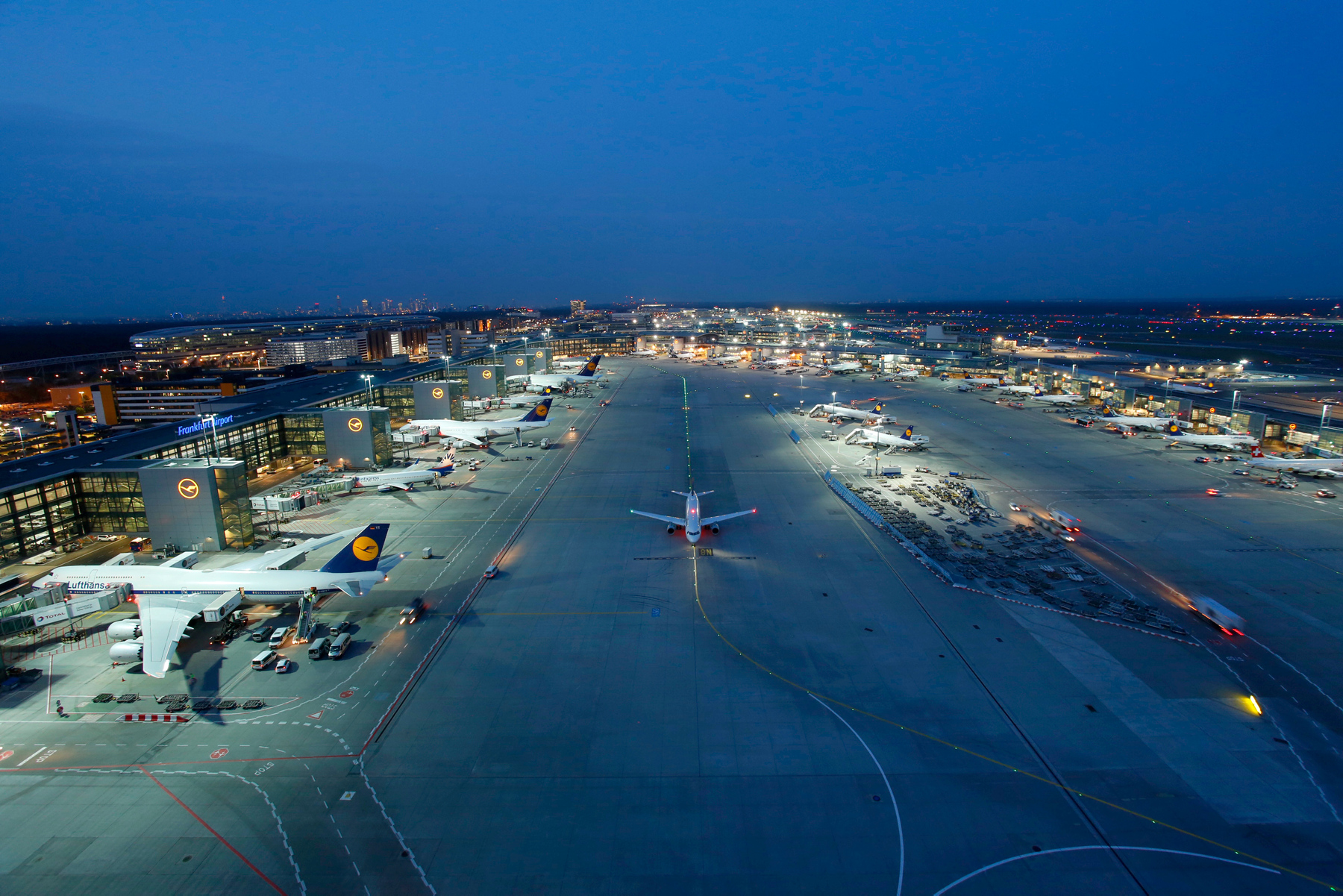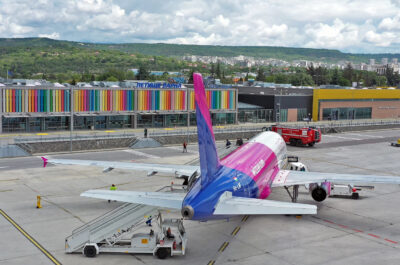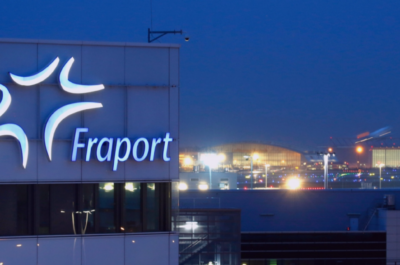All 2019 financial targets achieved. Extensive cost-reduction measures being implemented during current fiscal year; Outlook clouded amid growing uncertainty of the coronavirus outbreak.
Fraport AG looks back on a positive 2019 fiscal year (ending December 31). Fraport achieved all financial targets for 2019, despite the increasingly difficult market environment towards the end of the year. Moreover, the coronavirus outbreak has hit the aviation industry massively in the last few weeks. Therefore, it is currently not possible to provide a reliable business outlook for 2020. Overall, Fraport’s executive board expects the Group result to decline significantly for the current business year.
Fraport executive board chairman, Dr. Stefan Schulte, said: “After many years of strong growth, the aviation industry now finds itself in a severe crisis. At this stage, it is not yet possible to foresee when the crisis will end. Even before the coronavirus outbreak, our company was navigating in a more difficult market environment. In the last quarter of 2019, our business was impacted by a number of negative factors: including the economic slowdown, greater geopolitical uncertainties, consolidation of flight offerings, and bankruptcies of airlines and tour operators. Despite these adverse factors, our Group delivered a strong performance by achieving all financial targets in 2019. This was also largely possible thanks to our diversified international portfolio.”
Revenue and earnings targets achieved
In fiscal year 2019, Fraport’s Group revenue grew by 6.5 percent to about 3.7 billion euros. After adjusting for revenue related to capital expenditure for expansion measures (based on IFRIC 12), Group revenue increased by 4.5 percent to nearly 3.3 billion euros. This increase can be mainly attributed to the overall positive traffic performance achieved across the Group. In particular, considerably higher contributions to revenue growth came from Fraport’s home-base Frankfurt Airport, along with the company’s Fraport Greece, Fraport USA and Lima (Peru) subsidiaries.
The operating result (Group EBITDA) climbed by 4.5 percent to almost 1.2 billion euros. This includes a positive one-off effect of 47.5 million euros, resulting from the first-time application of IFRS 16. The mandatory IFRS 16 international financial-reporting standard has established new rules for the accounting of leases – specifically affecting the accounting of lease contracts concluded by Fraport USA. Due to higher amortization and depreciation, Group EBIT slipped by 3.5 percent to 705.0 million euros year-on-year.
The Group result (net profit) fell by 10.2 percent to 454.3 million euros year-on-year in the reporting period. The decline can be mainly attributed to lower “other operating income” versus fiscal 2018, when this item was boosted by extra revenue from the sale of Fraport’s stake in Flughafen Hannover-Langenhagen GmbH (leading to a 75.9 million euros increase in the 2018 Group result). Adjusted for this one-off effect, the Group result posted underlying growth of about 24 million euros or almost six percent in 2019 (based on an adjusted 2018 Group result of around 430 million euros).
Operating cash flow rose by 150 million euros or 18.7 percent year-on-year to 952.3 million euros. This increase resulted from the positive operating performance generated across the Group, as well as the application of IFRS 16 and an improvement in working capital. As expected, free cash flow fell to minus 373.5 million euros, reflecting extensive capital expenditure at Frankfurt Airport and Fraport’s Group airports worldwide.
Airports in Fraport’s international portfolio report mixed traffic results
In 2019, Fraport’s home-base Frankfurt Airport (FRA) reached another annual traffic record, with more than 70.5 million passengers traveling through Germany’s largest aviation hub. This represents an increase of 1.5 percent compared to 2018. Most of Fraport’s Group airports worldwide also recorded traffic growth during 2019. At the top of the table are Antalya Airport (AYT) in Turkey (up 10.0 percent to over 35.5 million passengers), Pulkovo Airport (LED) in St. Petersburg, Russia (up 8.1 percent to 19.6 million passengers), and Lima Airport (LIM) in Peru (up 6.6 percent to 23.6 million passengers). However, the global economy and the ongoing consolidation measures of airlines also impacted airports in Fraport’s international portfolio. In particular, the Group airports in Slovenia and Bulgaria experienced significant traffic declines, especially during the second half of 2019.
Outlook uncertain – Cost-reduction measures swiftly implemented
During the last few weeks, the coronavirus outbreak has led to massive flight cancellations and very weak demand in both intercontinental and European traffic. In February 2020, Frankfurt Airport’s passenger traffic slumped by four percent overall. The negative trend accelerated noticeably in the course of the month, with passenger traffic declining by 14.5 percent in the last February week. Passenger numbers even dropped by some 30 percent in the first week of March 2020.
Fraport has launched a number of cost-reducing measures to counteract the situation. All costs are now being rigorously reviewed, with only expenditures essential for business operations being authorized. Fraport AG has essentially suspended hiring new staff. Regular staff turnover will also be utilized to reduce personnel costs. Operational employees have been asked to rearrange work shifts, possibly postponing them until the summer or autumn. Moreover, employees have been offered voluntary unpaid vacation or temporarily reduced working hours. An arrangement for short-time work is in preparation.
CEO Schulte said: “We have to assume that the strong decline in air traffic volumes will continue during the next few weeks and months. At the same time, we are unable to reliably forecast the extent and duration of this development. Therefore, we cannot provide a detailed guidance for the full year 2020. Out of our responsibility towards our employees and the company as a whole, it is now vital to adjust staff deployment to the reduced demand – as fast as possible and in a socially responsible manner. We need to reduce our variable costs, wherever possible.”
Without the coronavirus outbreak, Fraport AG was expecting Frankfurt Airport’s 2020 traffic performance to remain at about the same level as in 2019. Taking the current development into account, a significant slump in passenger numbers at FRA can be expected for the full year. This will also lead to a marked decline in Group revenue for Frankfurt Airport. The executive board currently forecasts the traffic loss at FRA to result in a negative EBITDA effect of about 10 to 14 euros per missing passenger.
In addition, the impact of the coronavirus outbreak on passenger traffic at Fraport’s other Group airports is unforeseeable at this time and could have further dampening effects on Group revenue (adjusted for IFRIC 12) and other key financial figures. Overall, the executive board expects Group EBITDA, Group EBIT and the Group result (net profit) to noticeably decline over the full year. Nevertheless, the executive board intends to maintain a stable dividend of 2.00 euros per share for fiscal 2020.
Vicky is the co-founder of TravelDailyNews Media Network where she is the Editor-in Chief. She is also responsible for the daily operation and the financial policy. She holds a Bachelor's degree in Tourism Business Administration from the Technical University of Athens and a Master in Business Administration (MBA) from the University of Wales.
She has many years of both academic and industrial experience within the travel industry. She has written/edited numerous articles in various tourism magazines.

































































































































































































































